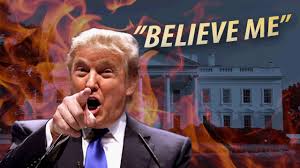Too True?
Just a quick thought.
Can you put too much effort into making sure a question satisfies everyone in its lack of ambiguity?
People want quiz questions to be perfectly clear with perfectly unambiguous answers, and rightly so, but it can sometimes be a little muddier than that.
Just as an example, if you watch Only Connect, you’ll notice that sometimes when teams give an answer Victoria Coren Mitchell asks them to explain why they’ve given their answer, and either accepts or doesn’t. They haven’t given the expected answer, but they have found a valid sequence or connection or at leas their own way to explain it (sometimes more specific or less so than envisaged). It doesn’t happen very often, but OC is perhaps more likely to have that issue than a standard quiz, perhaps, and requires everyone involved to be very much on their toes to keep up with the quick minds of the contestants.
But even in a standard quiz, whether hosted by a quiz master or on the page of a book or magazine or on a website or in an app, a question can be technically sound but people might still find what they think is reasonable cause for alternative answers.
I’m not talking about faulty questions really, or those which are poorly phrased.
There are different cases –
1. a question where the participant has a slightly different understanding of what the terms on the question mean, and by their terms, they have a different answer … an example might be something like the use of World Cup Finals or World Cup in a question – people might misunderstand what those terms mean.
2. a question might be technically correct but actually be too complex, so that most of what is in the question points to a certain answer, but there is a little detail which means that is not the right answer. It might be deemed a little unfair or tricksy – an example might be: “What film did this actor make with this director, in which he played this superhero opposite this actress, in 2002?” … when every detail might point to one answer except the year (there being two such films made in different years).
So, in each case the quiz master can reasonably enough say “No, sorry, your answer is wrong, the question is right and you’ve misunderstood it or not listened closely enough …”
Of course it always ought to be possible to add in plenty of wording and definitions – but where do you stop? Where do you draw the line? Is it worth the effort not to cover any eventuality, not to have to deal with a query?
It would seem that the obvious answer is “Yes” in most cases, but as a question writer, brevity, clarity and the form of the question are also very important, and sometimes you can get bogged down with caveats. So sometimes you take a judgement call to go for brevity and be armed with the facts for clarification. Or sometimes you have to just bite the bullet and bin a question because you can’t narrow it down sensibly enough. The key is to be aware of what you are doing.
It is always helpful for the quiz host (whether at a pub quiz or at a corporate quiz night or on a TV show) to have the facts at hand to put anyone straight if they are a little befuddled. It often actually enhances the host’s authority (as it does, for example, that of Victoria Coren Mitchell on Only Connect) to be able to say e.g. Interesting, but in fact THIS was in THIS COUNTRY, not THAT COUNTRY, so close but no cigar …”
So, for what it’s worth, I think the answer is “be fair and be armed with the facts”.
Reads like a rather good slogan …




First, thanks for your insightful comments on quiz-making. A quiz writer myself (I have compiled several pop quiz calenders in Dutch), I’m a great fan of OC, even though I never get more than two or three sequences right per episode. I’ve been wondering – is it the show’s explicit purpose to have unanswerable questions? If so, you definitely succeed 🙂